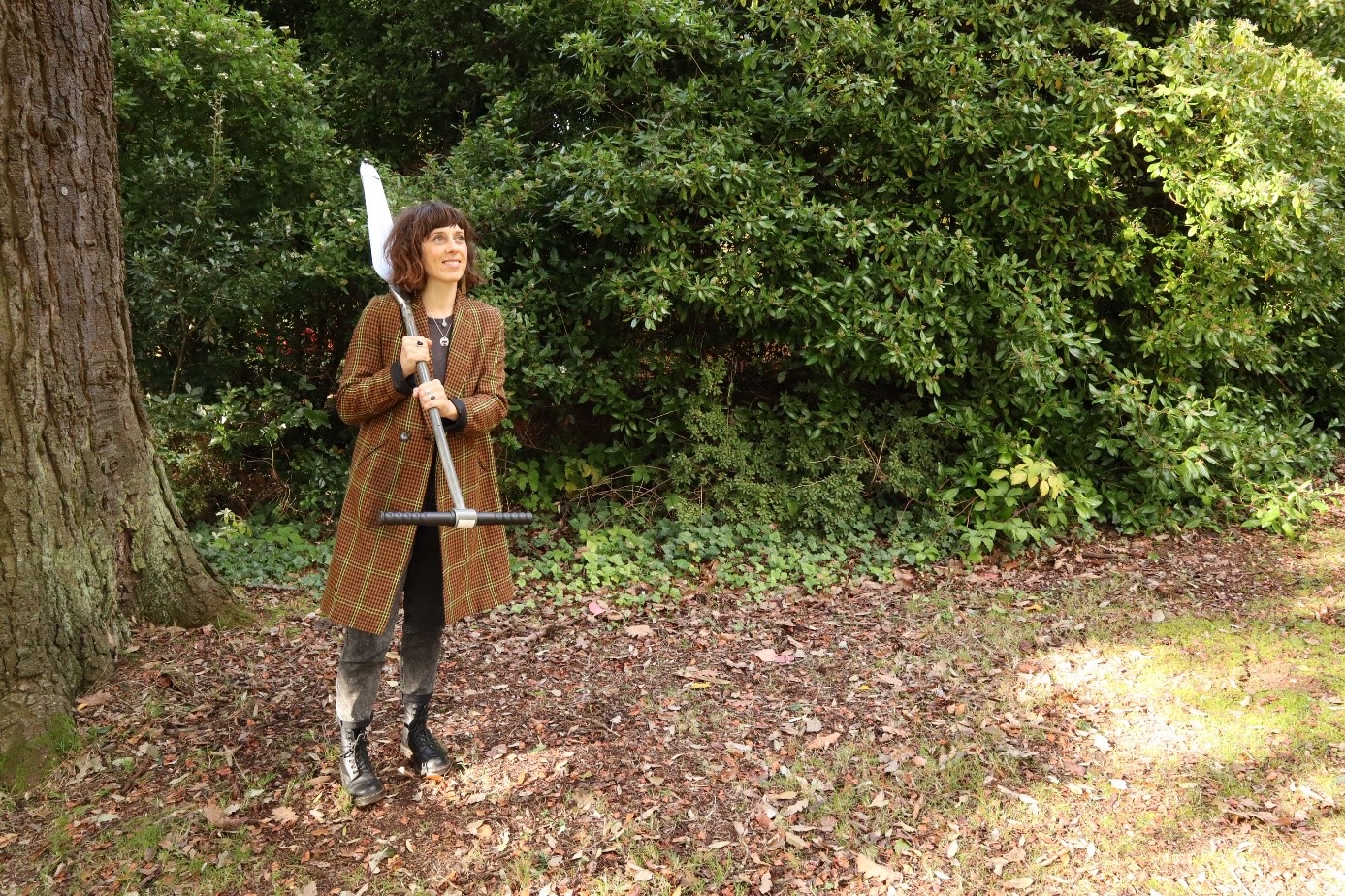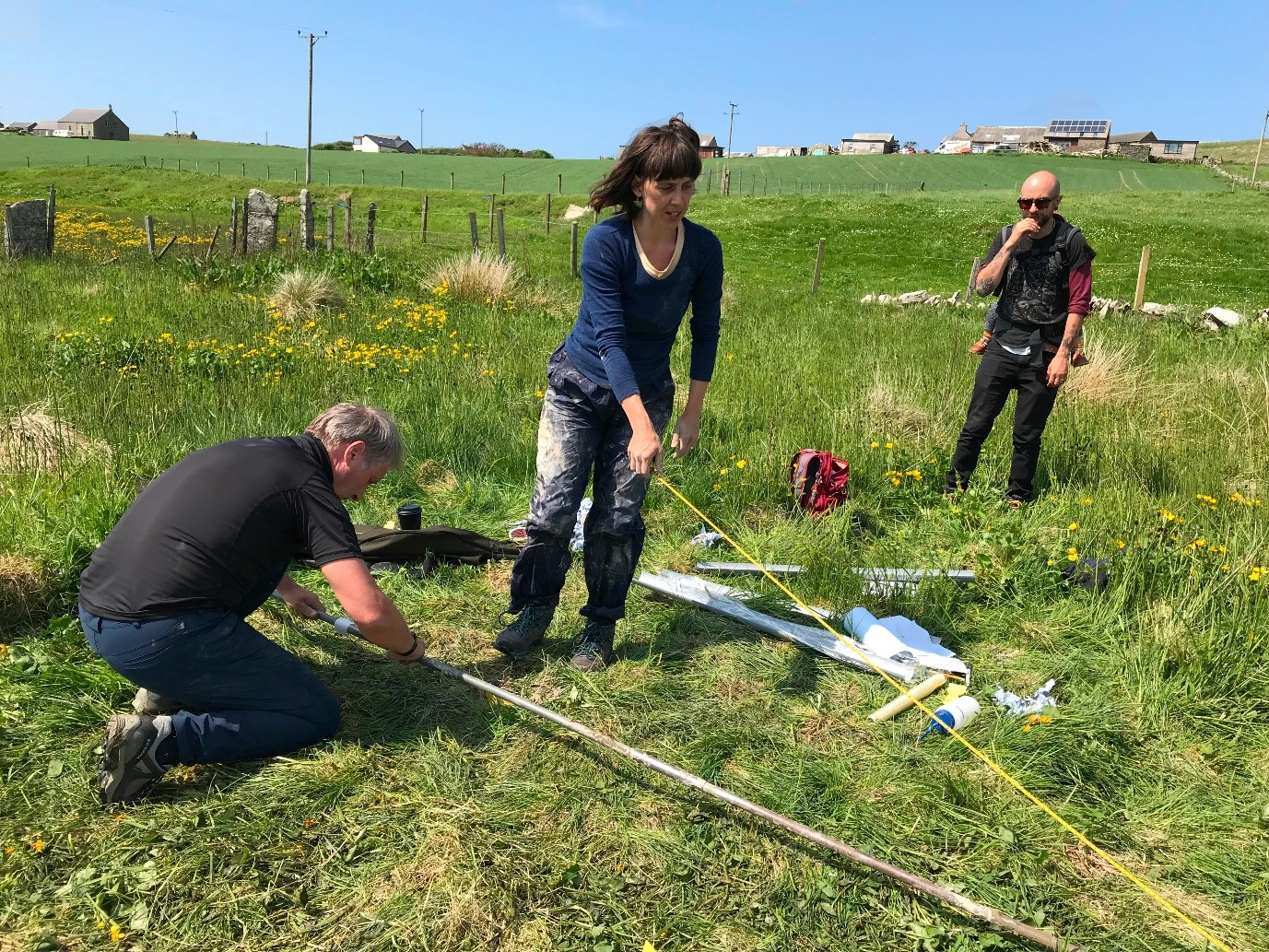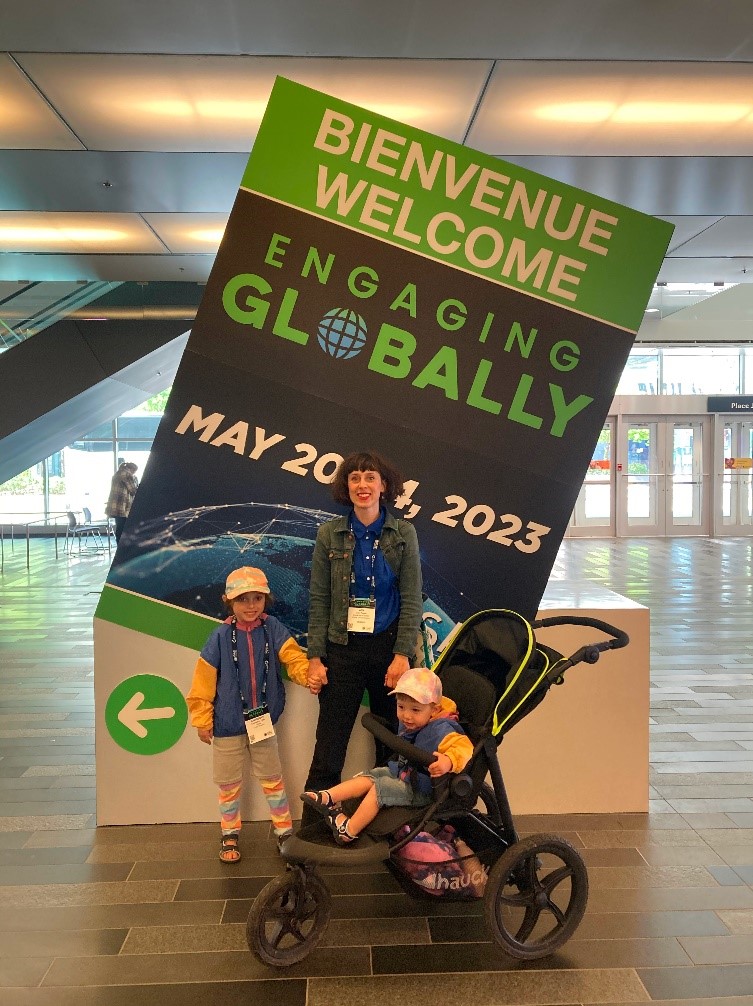Soapbox Science Interview: Dr. Ann Power

Ann and a 'lake corer', equipment which allows her to take samples from ponds and lakes.
News about advances in Artificial Intelligence (AI) is everywhere right now. Most reporting seems to focus on the potential negative consequences of advances in AI, such as whether it will make jobs redundant or even, someday, spell the end of humanity. While of course there are potential negative consequences of certain uses of AI, there are also huge benefits to the technological advances we are making. Dr. Ann Power’s research is a prime example of this: she is using AI to – ultimately – increase our understanding of the environment and improve human health.
By using AI, Ann – a postdoctoral researcher at the University of Exeter – can characterise pollen to a level of detail that hasn’t been possible before. As the climate warms due to human-induced climate change, the pollen season is becoming longer. Ann tells me that this has a direct impact on human health. “Hay fever is very common in the UK, and longer pollen seasons means that people are more likely to suffer with it, as well as with associated problems such as asthma. By understanding how much and what sort of pollen is in our air, we can get a better picture of how our environment is changing, and we can use this information to try to help those who suffer with hay fever.”
But how exactly does Ann use AI to do this? “We basically train computers to identify different types of pollen, and we do this using AI and deep learning”. Deep learning isn’t easy to get your head around, but it is basically a type of AI that acts as a computerised brain. Importantly, it can learn how to identify very complex patterns. What this means is that after a small period of training, Ann can feed photographs of the pollen from the environment into her AI system, and it is able to tell her what type of pollen it is looking at, with much better accuracy than humans can achieve.
“Using AI in this way is cutting edge,” Ann tells me. “It’s important to say that I’m not an AI expert, though. I’m an expert in using the equipment needed to get images of pollen, and I work with an amazing collaborator – Dr. Claire Barnes at Swansea University – who is an expert in AI. Collaboration is so important, and I have so much fun collaborating with Claire.” Ann tells me that collaboration and teamwork has become especially important to her in the last few years, since becoming a parent. “It is much harder to do science by yourself, and we can do so much more when we work together. Becoming a mother really highlighted that for me, as well as making me much more efficient with time. I need to be finished in time for the school run, so I work very efficiently to make sure that I am!”
Ann doesn’t only work with pollen and AI systems. She is an environmental detective across a broad range of topics. The common theme, however, is that she uses pieces of information extracted from the environment to reconstruct stories of people and place. Often, these stories help us understand not only how humans are impacting our environment, but also how these impacts then feed back into our own health and wellbeing. For example, as well as investigating climate change-induced shifts in pollen levels, Ann has also spent a lot of time reconstructing air pollution histories using urban pond sediments. By measuring levels of air pollution from pond sediment samples, she can not only understand historic pollution levels, but also ask how air pollution may influence people’s health. “We see high levels of historic air pollution in some areas, and we want to know whether the rates of cancers and respiratory problems in local communities might be linked to this”. As with Ann’s pollen research, this work is not only concerned with measuring humanity’s impact on the environment, but also how these changes may come back around to affect us.

Fieldwork on Orkney: Ann, her boss John Love (left) and husband Paul (back right) with their child strapped to his back. Ann loves this picture because it shows the wonderful support network she has.
Ann has been concerned with the effect humans are having on the environment for a long time. “I was an eco-warrior at school. I was always thinking about the influence we are having on our environment, and I still am.” Unsurprisingly then, Ann doesn’t switch off from being environmentally conscientious when she leaves work. She lives in a ‘tiny house’ on a farm in rural Devon, where she and her family try to live with the smallest carbon footprint that they can. She tells me that while she has always been environmentally conscious, having children has made her even more so. “Having my two boys has really made me think about what the world will look like in the future. I just want the world to be a good place for future generations.”
While Ann says that it can sometimes be difficult to see the big picture of scientific research when wrapped up in one specific question, she tells me that participating in Soapbox Science has been a great opportunity for her to look at her work from a different angle. “It’s been nice to look up from my everyday work and remind myself that my research is having an impact. The work I’m doing can help guide and inform us on how to better take care of our planet.”
It’s fascinating speaking with someone who is trying to make a difference at both a professional level and a personal level: not only is Ann using cutting edge methods to help us understand how we’re changing the environment and how this in turn may impact us, but she has also adopted a lifestyle that tries to minimise the impact she is personally having on the world. It’s easy to get bogged down in the doom and gloom of existential threats such as climate change, but Ann shows we can all do our bit to make a difference. Using AI and deep learning to uncover changing pollen levels is something we’ll leave in her expert hands, but living in a climate-conscious way is a goal we can all aim to achieve.
You can find Ann on Twitter @DrAnnPower and on Instagram @pocoscopic.

